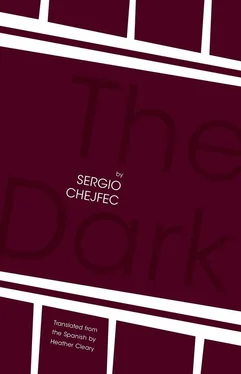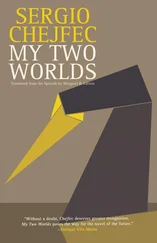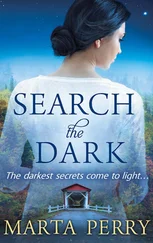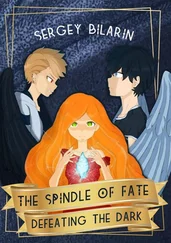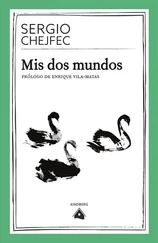For a long time, as I said, we would take the same route every night through the thistle barrens and the surrounding area. One evening, though, Delia wanted to make a detour and asked me if I wouldn’t mind going a few blocks further with her. Given how I felt at the time — how I still feel — I said of course, anything, whatever she wanted. Delia explained that she had to pick up some clothes. We didn’t head toward Pedrera, or toward her place; we went to a neighborhood full of half-built houses inside which packs of children played. At night it was hard to tell if the structures were ruins, or if something was being built there: a neighborhood, a settlement, a community, individual houses, and so on. That’s what I thought — or what Delia and I thought — at the time; now I don’t think there’s much of a difference. Everything built is the promise of a future ruin, even new constructions. We live surrounded by debris; living in a house means inhabiting a ruin — and I don’t mean this only in a literal sense. The children’s arms and faces could be seen through the holes left for windows; sometimes they would try, unsuccessfully, to hide behind the thin concrete columns that held nothing up. I remember those faces, lit by the moon, furtive like the animals. Never before had a place seemed so entirely left to the mercy of God, though I had seen worse. It was the sense of incompletion, the feeling that nature neither offered resistance — because no one had challenged it — nor made any demands; it wanted only to affirm its presence in the face of the man-made world. We walked in silence for more than an hour; the night passed while the landscape stayed the same. Though impossible, this happened as if it were true. And this was because we belonged to a misleading order of things: it was not that the landscape didn’t change, but rather that it didn’t matter to Delia or to me. My “landscape” was at my side: it was her, a face that presented itself for contemplation freely and without discomfort, partly confident and partly indifferent to those who fixed their attention on it. Just as the wind suggests the activity of the world by stirring the leaves, the breeze that ran through Delia’s hair exhibited her concentration, which I’d almost describe as a withdrawal, a surrender unique in that she was not giving up anything in particular. These waves, the work of the wind in her hair, were yet another sign of how entirely fitting her presence was. As in a classical image, depth and mystery emanated from this movement, yet it was a contradictory sort of mystery because it relied on a superficial instrument like the air to manifest itself. In the same way, just like at work, Delia surrendered a part of herself when she withdrew; someone observing her might think that at any moment she might cease to be herself, that she might succumb to a force that would isolate and take over her body. But something kept her from crossing that threshold, and this was how Delia was able to maintain the delicate balance between absence and communion.
I said before that the landscape mattered little, that my landscape was the one I kept at my side: her. I experienced that long string of ruins — ex-houses or pre-buildings, scattered across the terrain and indifferent to the way people used them — as a kind of delay or postponement, something secondary to what happened in real life, in the true landscape. But what was Delia’s landscape? I was at her side, therefore it was me. This may sound rash, and maybe a bit vain, but I don’t have any memories that would contradict it — much less from that night. In many novels a character’s nature manifests itself through his face; a portrait is read, a soul glimpsed. But the truth is that faces speak of themselves and also of varied, even contradictory things; they never indicate one thing alone. A serene neck tenses suddenly and for no apparent reason; what can be read into this, aside from the anxiety of the observer? The confusion of the person to whom the gesture was directed? A sensual lip twitches not with desire, but disdain; the arch of a forehead promises intelligence, but also hints at the betrayal soon to follow. Sparkling eyes, as big as moons and as deep with sincerity as the wells I mentioned earlier when speaking of Delia, offer themselves up and crumble, emptied out without ever giving what they promised. An imploring brow, innocent cheeks, nostrils flared with passion. And yet faces say the opposite, contradicting their individual parts. The strength that Delia transmitted, that serene focus, was concentrated in her eyebrows. They were thick and bushy, and though they belonged to something as conventional as a face might seem to be, they were the mark of an untamed or savage past; a sign that became a promise that was, nonetheless, fulfilled.
I had been mistaken about the phrase “pick up some clothes,” the same way I had been about what I’d wanted to see and not to see when I discovered where Delia caught the bus. “Picking up some clothes” meant, to me, “picking up some clothes I lent someone.” This was evidently a specific reading, not exactly wrong, but incorrect. It was also less straightforward than the one I had not wanted to imagine, but which was true all the same: that Delia needed to borrow clothes because there were times when she had nothing else to wear. I discovered this a few days later, under sad circumstances, when she had to return what she’d borrowed. We were walking along a dirt road. It had rained the day before, and as the earth dried out, the steam that rose from the puddles smelled of mud, a scent that called to mind roots, leaves, fruit, and animals or insects, all mixed together. The smell was strong, unmistakable; it felt like being within centimeters of the ground, to that height just above the surface where the particles float at the mercy of the air, the weather, and the movements of the earth, which lift them and then let them fall again, forming a crust in a state of permanent suspension, a halo of proximate gravity. Anyway: we were walking along, upright, as saturated with the humid scent of the mud as if we had been close enough to taste it, when Delia suddenly said, “I hope a car doesn’t splash me, I have to return this skirt tomorrow.” The skirt was dark, blue or black, depending on the light. I had been reflecting on the skirt all along, since I noticed that it made Delia’s hips, so attractive in their innocence and the harmony of their shape, more attractive still. As she walked, her legs seemed to be holding up a mystery, a bud waiting for the right moment to burst open and unfurl. What I mean is that the skirt seemed to have been made for Delia, that its essence or meaning was only fully realized when, as is always said of the primary function of attire, it shielded her from the elements. But this impression crumbled as soon as I heard her remark. It took me a while to understand that such loans could belong to an order as natural as any other — possession, for example; the idea that the skirt had been made especially for Delia was no less true because she could only wear it when it had been lent to her. This gave the loan a new significance: it was the alias fate had chosen to reveal a truth, in this case one that involved Delia, which otherwise would have remained hidden.
That afternoon, I also discovered that the concept of a loan might encompass different, even contradictory, meanings. A loan, a debt. I’ve read several novels that try to determine the meaning of these words. I don’t know if they succeed; in any event, none present a model of loans or debt that resembled the way Delia seemed to see them. Delia believed that a loan could never be repaid in full, that the loan itself brought about a decisive change in the general course of events, and therefore that the idea that giving something back was a repayment, compensation, or a return to normal was misguided and incomplete. She believed that the loan remained active over time, even after it was paid back. This was because the object, in this case a skirt, retained traces of its various owners, or rather, of the various people who had used it over time. These marks, which made the objects unique and unmistakable, were invisible to the average person yet were indelible in the eyes of the community. With each new loan, the collective appreciation of the object — here, the skirt — grew. The article of clothing itself could deteriorate with use and circulation, but this damage was mitigated by the greater care everyone would take of it. As such, time limits were rarely imposed on these loans. Not because there was no pressure to return the item, but because, since the object was marked by each custody, the debt was reproduced in the memory of the community. That was debt, according to Delia: a repayment that was both unnecessary and always deferred. It was clearly a definition far removed from material concerns, at least, as these are generally understood. And this in spite of the fact that she lived, as perhaps I’ll describe later, with the daily reminders of that other, broader type of loan, the kind geared toward profit. It’s true that even before that moment, it had been obvious that the skirt could not have belonged to Delia; still, my surprise when I discovered it wasn’t hers was an effect of that part of the obvious we don’t want to acknowledge. The obvious side of things seems innocent, insubstantial, there for the sole purpose of holding up the hidden face of what is not obvious. And yet, the world organizes itself according to what is revealed. In this way, Delia’s comment about the loan added a measure of truth to what was already evident, and the weight of this reality became more pronounced.
Читать дальше
